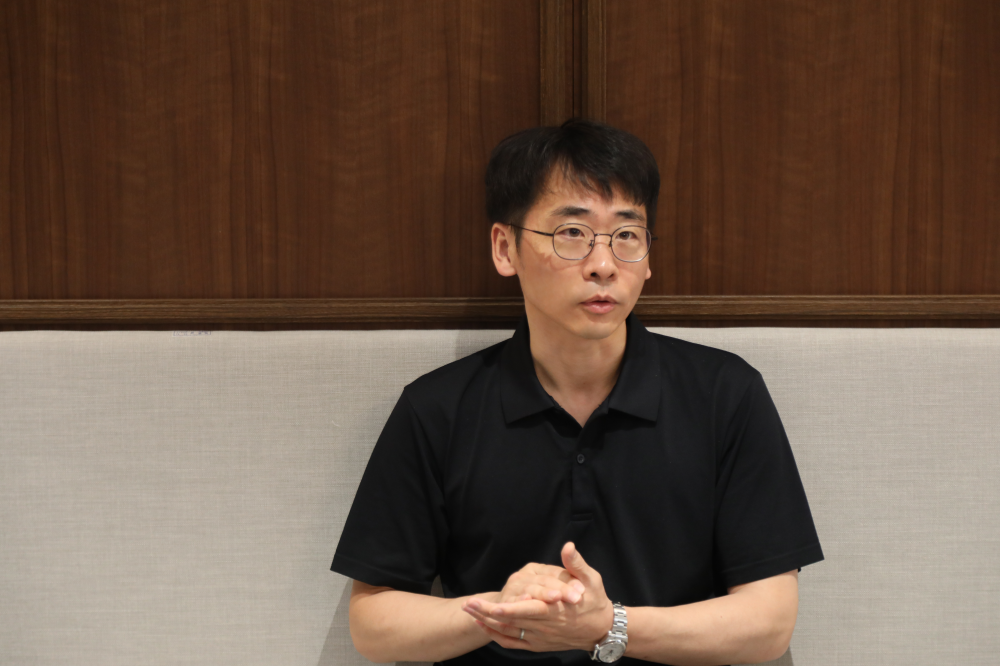News
KUBS News
Interview with the Recipient of the SK Research Paper Award – Professor In Joon Noh
2025.06.09 Views 2120 국제실
Interview with the Recipient of the SK Research Paper Award – Professor In Joon Noh

In 2025, a research paper co-authored by Professor In Joon Noh of Korea University Business School, titled "Evaluating Quality Reward and Other Interventions to Mitigate US Drug Shortages" (co-authors: Sergey Naumov, In Joon Noh, Hui Zhao), was published in the Journal of Operations Management (Vol. 71, Issue 3) and received the SK Research Award.
The study was highly acclaimed for its quantitative assessment—using a system dynamics model—of the effectiveness of the “Quality Reward” policy recently proposed by the FDA to address the ongoing drug shortages in the United States, a problem that has persisted for over a decade.
Q1. Congratulations on publishing your paper in an SK Tier 1 journal. Could you share your thoughts on this achievement?
A. I’m very pleased and grateful that the paper I began working on in late 2020 has finally been published after a lengthy process and multiple rounds of revision.
Q2. Could you briefly introduce the main content and background of your paper?
A. Drug shortages have long been a challenging and persistent issue in the United States. Interestingly, the root cause of this problem is closely tied to the unique characteristics of pharmaceutical products. Unlike general consumer goods, patients are unable to directly evaluate the quality of medicines. As a result, ‘low price’ often becomes the dominant criterion for product selection, rather than ‘high quality.’
Due to this market characteristic, pharmaceutical manufacturers tend to prioritize cost reduction over quality investment once they obtain initial approval from the U.S. Food and Drug Administration (FDA). This dynamic leads to severe price competition, declining profitability, and ultimately, quality degradation—creating a vicious cycle that results in repeated supply disruptions.
In this study, we use a system dynamics simulation to examine the potential impact of a “Quality Reward” policy—a mechanism recently proposed by the FDA and several industry experts and scholars. This policy aims to quantitatively rate the quality level of pharmaceutical products and provide incentives based on those ratings, thereby addressing the underlying causes of drug shortages.
Q3. What motivated you to start this research?
A. Before beginning my doctoral studies, I worked as a quality engineer in the semiconductor division at Samsung Electronics. That experience led me to pursue research related to quality management. Fortunately, during my PhD, I had the opportunity to collaborate with the U.S. Food and Drug Administration (FDA) on several projects aimed at improving pharmaceutical quality. These collaborations sparked my interest in exploring the broader issues of drug quality and shortages in the U.S. market.
This particular study was my first independent research project after completing my PhD and starting my academic career at a university in the United States. Unlike the projects I conducted with the FDA during my PhD—many of which were under the guidance of my advisor—this paper was initiated jointly with my new faculty colleagues. That’s why the publication and this award feel especially meaningful to me.
Q4. What societal or industrial impact do you expect from this research?
A. This study, Evaluating Quality Reward and Other Interventions to Mitigate US Drug Shortages, quantitatively evaluates the recently discussed “Quality Reward” policy in comparison with existing measures that have been implemented to address drug shortages. In addition, it examines the potential unintended consequences of the Quality Reward approach and proposes strategies to mitigate them.
I hope this research will serve as a valuable reference for policymakers working to implement such incentive-based frameworks and ultimately make a meaningful contribution to resolving the ongoing issue of drug shortages.
Q5. What are your future research plans or areas of interest?
A. My current research focuses on pharmaceutical quality and drug supply shortages. Moving forward, I plan to expand the scope of my work to include healthcare service domains such as hospitals and nursing homes. Now that I have returned to Korea, I also intend to study the Korean pharmaceutical and healthcare industries more closely.
Q6. Do you have any advice for students?
A. No matter where you work or what profession you choose, I believe it’s important to maintain a spirit of curiosity and a mindset geared toward improving the situation around you. If you approach your work with that attitude, meaningful opportunities will naturally follow—whether in your current role or along a new career path.
Summary of Professor In Joon Noh’s Paper:
「Evaluating quality reward and other interventions to mitigate US drug shortages」
Drug shortages have posed a serious threat to public health and the healthcare system in the United States for over a decade. While previous studies have examined the causes and consequences of these shortages, relatively few have explored potential policy solutions. This study uses a system dynamics model to assess the long-term effects of two existing policy interventions—accelerated drug approval processes and incentives for manufacturers to expand production—alongside the more recently proposed “quality reward” initiative in the U.S. generic drug market. The analysis finds that while the existing interventions may provide short-term relief, their long-term effectiveness is limited. In contrast, the quality reward policy demonstrates greater potential for sustainably mitigating drug shortages. However, it also carries the risk of creating monopolistic supply markets. To address this concern, the study proposes a mechanism for publicly disclosing quality information. As the first study to quantitatively compare the long-term effects of the quality reward and other existing policies—and to explain the structural mechanisms underlying their outcomes—this research offers important insights for strengthening the resilience of the drug supply system.


